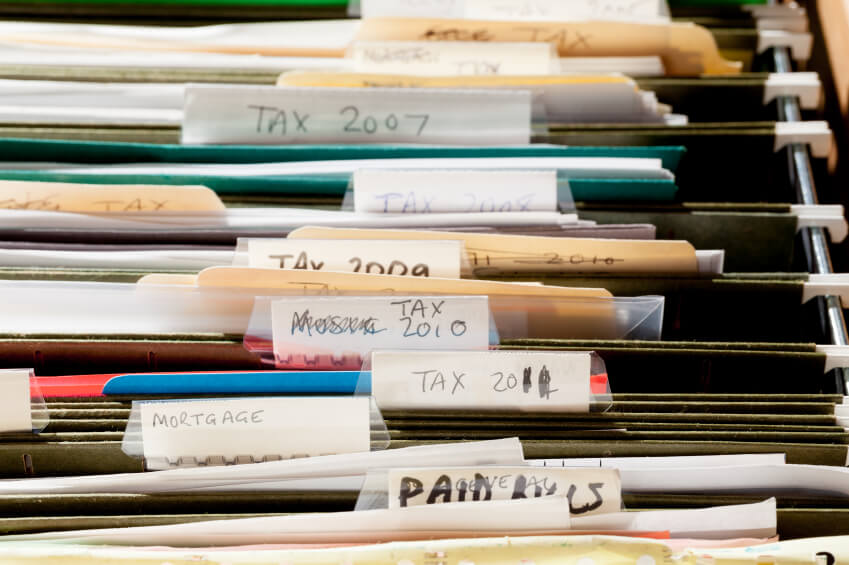
Good tax record retention is a key characteristic of any well-organised business or self-employed individual. Tax records provide objective evidence of financial activities and typically include payslips, invoices and receipts – amongst other types of document.
Careful retention of these documents is important because Her Majesty’s Revenue and Customs (HMRC) can request a detailed account of your financial activities to ensure the correct amount of tax has been paid.
What’s more, HMRC can ask for certain documents from past tax years. This means you need to know what to keep and for how long – and all of this depends on the type of operation you run.
Tax document retention for the self-employed
If you work for yourself, you need to keep all records pertaining to sales and income, business expenses, personal income, employees, pay as you earn (PAYE) and value-added tax (VAT) – if you’re registered for it.
Some examples of these records include receipts, bank statements, invoices and till rolls. They can be retained as digital or paper records, as long as they are legible.
You must keep your records for at least five years after the January submission deadline of the relevant tax year. If the figures you supply are wrong, then you face a severe – and costly – penalty that could set your business back financially.
Tax record retention for limited companies
If your limited company has an annual income of over £150,000, then you have to use the traditional accounting method to record income and expenses by the date you were invoiced or billed. For businesses earning less than the above amount, you can choose to use the traditional method or cash basis methods.
Your accounting records need to account for all money received and spent, all goods bought and sold and who you bought/sold them to/from, details of assets owned by the company, stock the company owns, and loans or mortgages secured against the company’s assets.
Examples of these records will include receipts, invoices, contracts and petty cash books. Keeping other financial information such as bank statements is also vital. Small to medium enterprises (SMEs), must keep records for six years from the end of the last financial year. This particular time frame can increase if transactions cover multiple accounting years.
PAYE records – for employers
If you are an employer with employees on payroll, you must retain the following records for PAYE: amounts paid to employees including any deductions, payments made to HMRC, employee leave and sickness absence, and taxable benefits or expenses.
These records must be kept for three years from the end of the tax year they relate to. And be careful, you may have to pay a fine of up to £3,000 if the numbers don’t match up.
PAYE records – for employees
For employees, it’s important to keep your P45 and P60 records, employer benefits or one-off payments that aren’t on the P60 or P45, expenses, as well as any redundancy or termination payment information.
Employees should keep their records for at least two years after the end of each tax return’s tax year.
Tax document retention with Access Records Management
Tax documents can easily pile up and take up room in an office or home. If you don’t have the space to accommodate all your tax records, or need to store them somewhere in a more organised and secure fashion, then consider Access Records Management. Our range of document storage solutions are designed for companies of all sizes and needs.
For more information on how a records management service can help you address you tax record retention needs, contact the team today.
.




